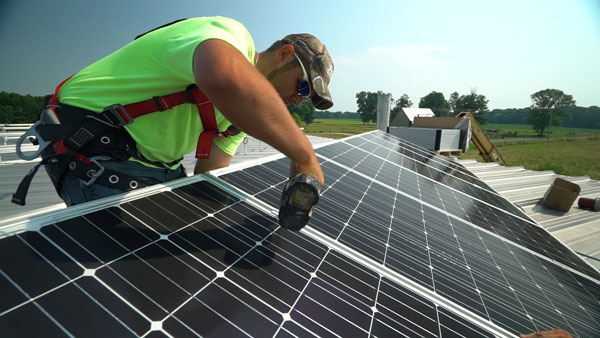
Federal Investment Tax Credit (ITC)
A tax credit is a dollar-for-dollar reduction in the income taxes that a person or company claiming the credit would otherwise pay the federal government. The Energy Policy Act of 2005 created the ITC for commercial (and residential) solar energy systems. At the end of 2015, Congress extended the ITC for projects completed by the end of 2023.
The ITC started at 30 percent of the basis that is invested in the eligible solar installation that commenced through 2019. In 2020 the ITC stepped down to 26% and declines to 22% in 2023. After December 31, 2023, the commercial credit will drop to 10% (and residential will drop to 0%). Our blog post describes this in further detail.
This is a fantastic solar tax incentive for taxpaying entities to take advantage of—while it still remains available!
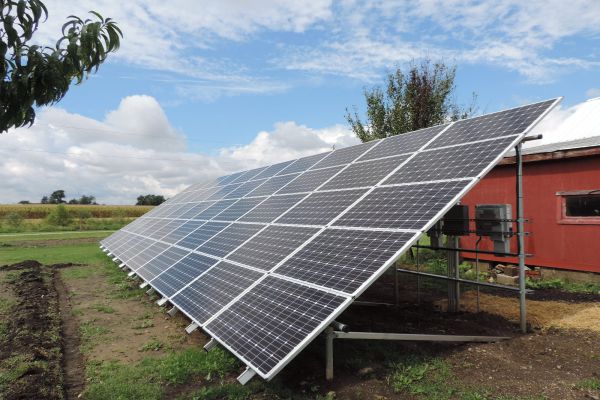
5-Year Accelerated Depreciation (MACRS)
The Modified Accelerated Cost Recovery System (MACRS), established in 1986, is a method of depreciation in which a business’ investments in certain property are recovered, for tax purposes, over a specified time period through annual deductions.
The IRS has classified solar PV equipment as 5-year property, allowing a commercial taxpaying entity the ability to expense or write-off a solar investment quickly. The added tax deduction can help further boost a solar project’s return on investment (ROI). NOTE: your project might qualify for even faster write-off using Section 179 depreciation allowances. Congress frequently tampers with the Section 179 limits and your tax professional should guide you accordingly.
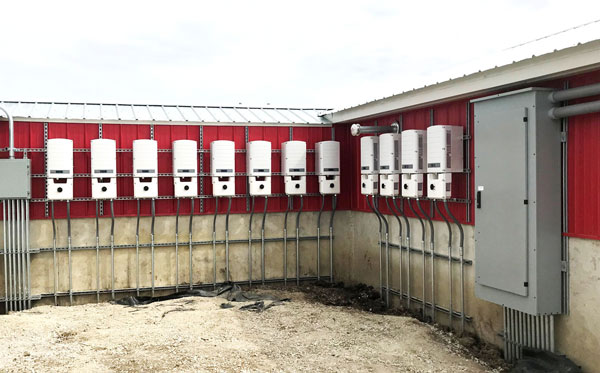
Illinois Smart Inverter Rebate
Illinois businesses and solar communities interested in investing in solar power might be overlooking an incentive that could save them a lot of money.
As Illinois makes a strong push to get more energy from renewable sources, the state has rolled out several incentives to move its energy portfolio towards solar and wind resources. These incentives include a rebate when purchasing smart inverters for your solar panel installation.
Here are the important aspects of the Illinois Smart Inverter Rebate you should know about:
- Eligibility: MidAmerican, Ameren, and ComEd non-residential and community solar projects up to 2 MW (AC) installed after Jan. 1, 2017
- Rebate: $250 per kW of project’s direct current capacity
- What is a Smart Inverter?: Smart inverters have greater capabilities than previous inverters, such as active control of voltage and frequency, as well as the ability to communicate with utility.
- Requirements: Customers must enroll under a net metering tariff that only provides net metering credits for the generation portion of a customer’s utility bill. As well, the meter must be able to communicate with the utility.
- Eligible Smart Inverters: As per Future Energy Jobs Act: Section 16-107.6(a) “Smart inverter means a device that converts direct current into alternating current and can autonomously contribute to grid support during excursions from normal operating voltage and frequency conditions by providing each of the following: dynamic reactive and real power support, voltage and frequency ride-through, ramp rate controls, communication systems with ability to accept external commands, and other functions from the electric utility.”
Now is the time to act and take full advantage of the Illinois Smart Inverter Rebate, as well as other state and federal incentives. For more information, contact us here.
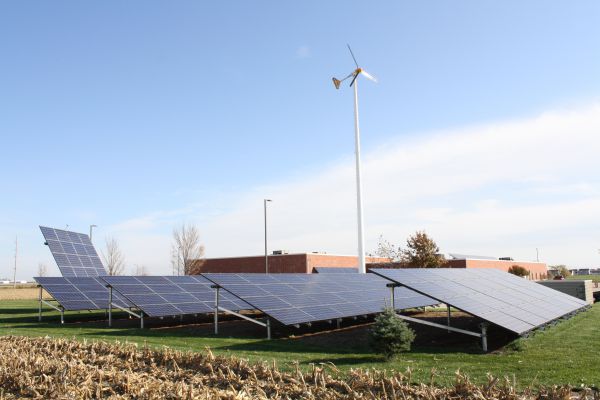
Illinois Solar Renewable Energy Credits (SRECs)
& Illinois Shines Program
In Illinois and other select states, SRECs provide an outstanding solar incentive that helps an owner recoup a solar system’s investment. SRECs have been created to help States meet Renewable Portfolio Standards (RPS) which set goals for generating a percentage of that states overall electricity from renewable energy. In Illinois, for example, the Illinois Shines Programs administer SRECs, which can potentially cover 20% to 40% of the total solar investment.
Typically, one SREC equals 1,000 kilowatt-hours (kWh) of solar energy generated. SRECs accrue as solar electricity is generated, and are typically paid out quarterly or other interval defined by each State.
To learn more about SRECs, click here!
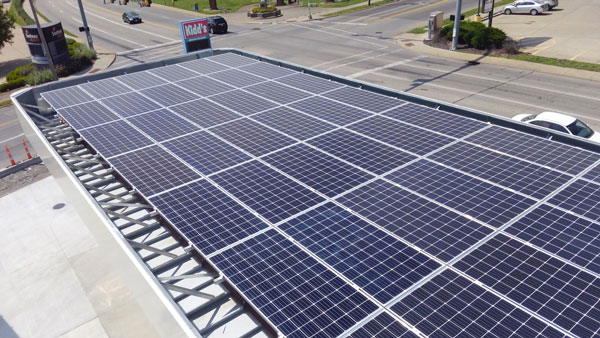
USDA REAP Grant for Small Businesses
For small rural businesses, a USDA REAP grant can potentially provide grant funding for renewable energy projects (wind or solar) or energy-efficiency retrofits. These grants also provide loan guarantees used to finance energy projects.
If a business is located in a rural area with a population size under 50,000—and also meets the definition of “small business”—the USDA REAP grant can provide up to 25% in grant funding. Even businesses with several hundred employees can potentially meet the definition of “small business.” This grant is highly competitive, but can provide financial assistance if awarded. Tick Tock Energy provides grant-writing services and has a great track record of helping our clients land grant-funding.
Keep in mind grant funding is also considered taxable income.
Contact Tick Tock Energy today to speak with a knowledgeable sales consultant who can help you further understand and navigate the available options, and identify solar incentives for your location and business.
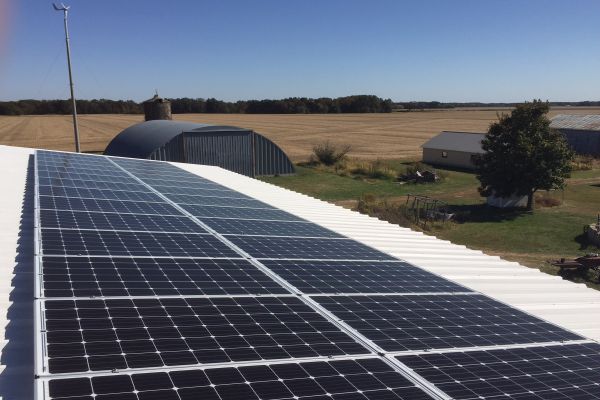
Can’t Take the Tax Benefits?
If your company can’t monetize the tax credit, a solar operating lease is a great alternative. A solar lease may allow the lessor to capture the tax benefits enabling the lessee to enjoy a lower monthly lease payment.
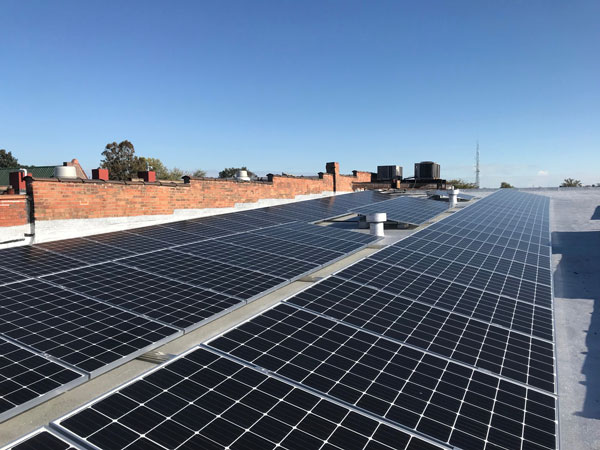
Ameren Missouri Solar Rebates
Unfortunately the Ameren Missouri Solar Rebate Program ended on December 31, 2023, and is no longer available.



